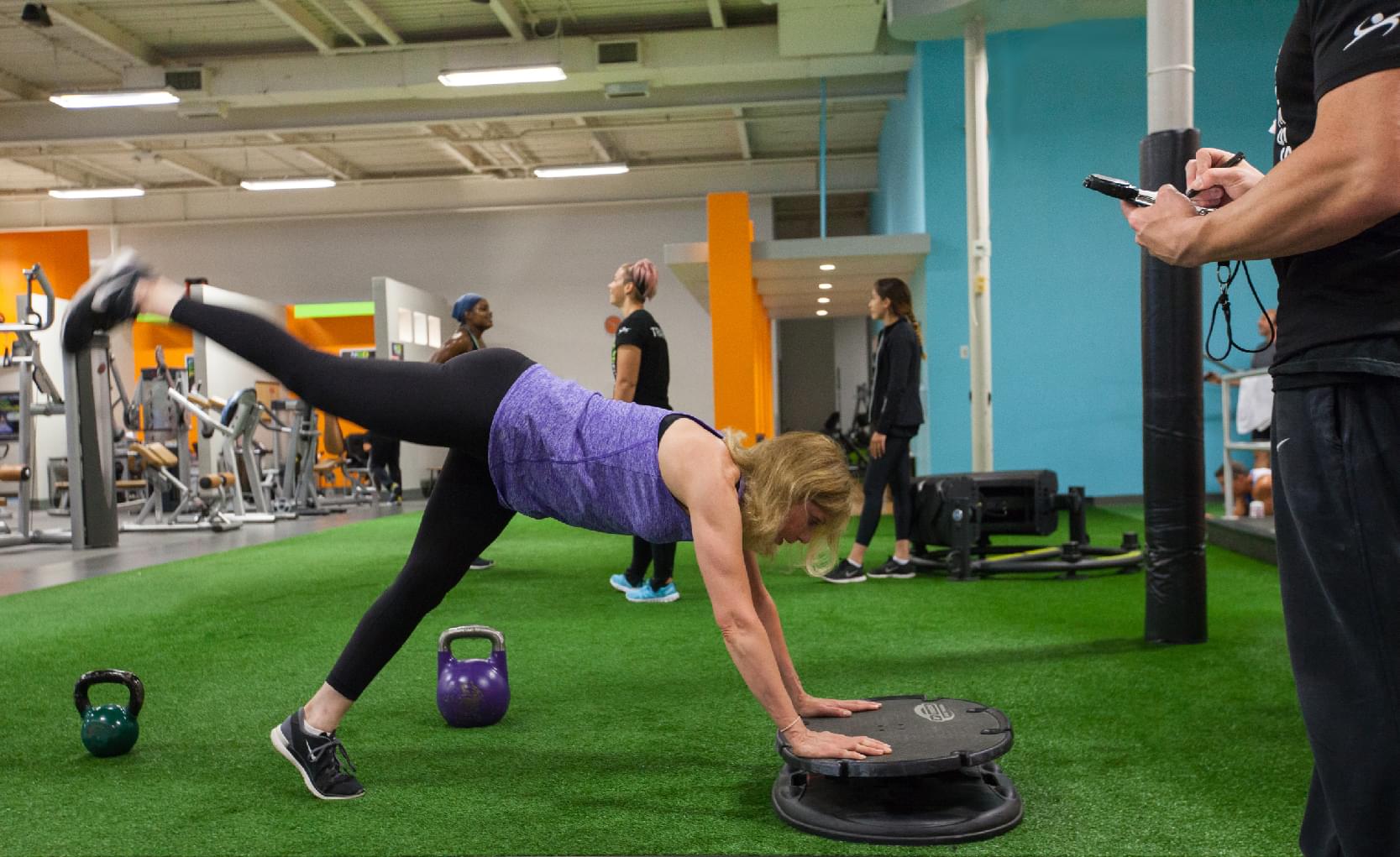
Qualities You Should Look for in a Personal Trainer
A Personal Trainer should certainly be certified to do their job, but that’s just the beginning. To find a trainer who will steer you towards success, you’ll also want to check out their educational background, experience level, coaching style, and even their hobbies.
But first, you’ll need to start with the most important component: You. Before you begin your search for a suitable PT, determine what your fitness goals are. Getting clear on your goals will help you to define the specific traits and skills of your ideal PT, so that you’ll know what to look for.
Let’s break down the 11 most important attributes to look for in a PT, one by one. As you make your way through this list, keep your specific fitness goal in mind. This will help you paint a mental picture of your ideal trainer’s education, experience, and personality.
1) A Reputable Trainer Certification

At the very least, your PT should be certified. However, “certified” can have many meanings. Some certifications are one-weekend courses with no prerequisites; others require a four-year degree and involve at least 100 hours of rigorous study and hands-on practice. You can probably guess which of these is more valuable.
A prospective trainer should be happy to discuss u their specific certification with you. Look for trainers certified by well-respected and prestigious programs — ACE, NSCA, ACSM or NASM are all great examples. This way you can rest assured that your potential trainer has the basic training needed to help you achieve your goals safely and effectively.
2) A Relevant Educational Background
Your PT should have an educational background that pertains to your specific fitness goals. Although a bachelor’s degree is not necessary, it can definitely be a plus — especially if your PT has a degree related to exercise. A degree in sports medicine, exercise science, physical education, or kinesiology (the study of human movement) will add to your PT’s depth of knowledge and allow them to make more educated and diverse recommendations.
3) Complementary Credentials or Specializations

If you’re lucky, you might find a PT with specialties that relate to your interests and goals. Some trainers have credentials in specific wellness-related topics. Examples include nutrition, corrective exercise, athletic conditioning, stress management, weight loss, and pre- and post-natal fitness.
Think about what sort of additional expertise you’d like your PT to have. A PT with special expertise will have a more multifaceted background and a broader skill set. For you, this means that your trainer won’t just help you accomplish your goals by suggesting exercises — they’ll also be able to teach you related wellness skills.
4) Demonstrated Expertise
It’s one thing to have degrees and certifications. It’s another to be able to put knowledge to work and provide clear explanations of complex concepts. Your PT should be able to speak with authority on the subject of fitness, explain the reasoning behind the exercises they’ve chosen for you, and map out the path they’ve designed to get to your goal (and beyond). An ideal trainer will also continue to educate themselves about new research and discoveries in the field of exercise science and share this knowledge with you.
If your trainer is a true fitness expert, they’ll provide a broad vision of what both short-term and long-term success will look like for you — and this vision should be modified when necessary. For example, while your initial fitness goal might be to start exercising regularly, your trainer might help you define more specific weight loss or muscle gain goals once you’re feeling more capable.
5) Real-World Training Experience

More experience is always better. Ideally, your PT will have at least one year of experience under their belt. If your PT has trained people with goals and interests that are similar to yours, that’s even better.
Some PTs will provide you with references of previous clients, so that you can speak with people who they’ve trained and ask them about their journey with that specific PT. If a PT is experienced, you may also be able to read some reviews and testimonials from their previous clients.
6) A Personal Commitment to Fitness
If you want to make fitness a habit, your PT should have a fitness habit. If you want to achieve your fitness goals, your PT should be progressing towards their own fitness goals. This doesn’t mean that your PT must have rock-hard muscles or walls lined with trophies. You just want some assurance that they walk the talk and follow their own fitness advice before you apply that same advice to your life.
You can ask PTs about their fitness habits directly, or check out their website and social media accounts to get a sense of how they present themselves and their (hopefully active) lifestyle.
7) A Vested Interest in Your Success

Your relationship with your personal trainer should be … well, personal. During your first few conversations with a new PT, they should show a genuine interest in your fitness goals and helping you achieve those goals in a personalized way. Otherwise, they’re likely to provide you with a one-size-fits-all approach that’s not catered to you.
As you get acquainted with PT candidates, expect them to dig deep and ask you all sorts of questions about your life. To get a complete picture of your specific needs, they may ask you about your short-term goals, long-term goals, schedule, family, diet, stress level, sleep habits, and hobbies. All of this information will be useful for them when they build out a custom-fit workout plan that’s based on your needs.
Essentially, you should expect to be interrogated by a new PT. It’s a sign that they want to understand you as a person — and treat you like one — rather than a scheduled obligation.
8) Honesty
Your PT should be completely truthful with you. They should be honest about their qualifications, remain true to their promised availability, help you set goals that you can actually achieve, and give you straightforward feedback on your progress.
A PT is someone you choose as a long-term fitness partner. As with any good partnership, your relationship with your PT should be built on authenticity. And this authenticity should go both ways — you should feel comfortable being completely honest with your trainer, especially when you’re having a hard time or feeling frustrated with a lack of progress.
9) Patience

Find a PT who will patiently address any questions you have about your training plan or the reasoning behind specific exercises. Part of a PT’s job is to educate you, so they should welcome any questions you have, and take the time to answer them fully.
Ask This: During my training sessions with you, how much time will there be for me to ask you specific questions I have?
10) Excellent Communication Skills
If your PT tells you how to do a dumbbell thruster and you end up thrusting your dumbbells through the closest window, there might be a gap in communication. You should be able to understand your trainer’s exercise explanations without difficulty, especially if you’re not training in person. Instructional videos can be an effective tool for this.
Ask This: Can you explain a couple of specific exercises you’d have me do to reach my goal of X?
11) A Coaching Style You Click With

It’s important to choose a PT who you can easily talk to and confide in. But beyond basic likeability, you’ll want to make sure that their coaching style is a good fit for you.
Think about what kind of coaching style you’d like your trainer to have. Some people want their trainer to play the role of a drill sergeant to keep them off the couch and in motion, while others might respond better to a softer, more nurturing approach (or anything in between). What kind of motivation do you need to get up and moving?
Once you’ve decided on your preferred coaching style, you’ll be able to ask your trainer if they can accommodate your preference. Keep in mind that this preference might change over time; make sure that your trainer will be able to adapt if you need them to be harder on you.
By being clear about your communication preferences from the start, you’ll ensure that your PT can keep you focused and motivated to succeed in the long-term.

Leave a Comment
(0 Comments)